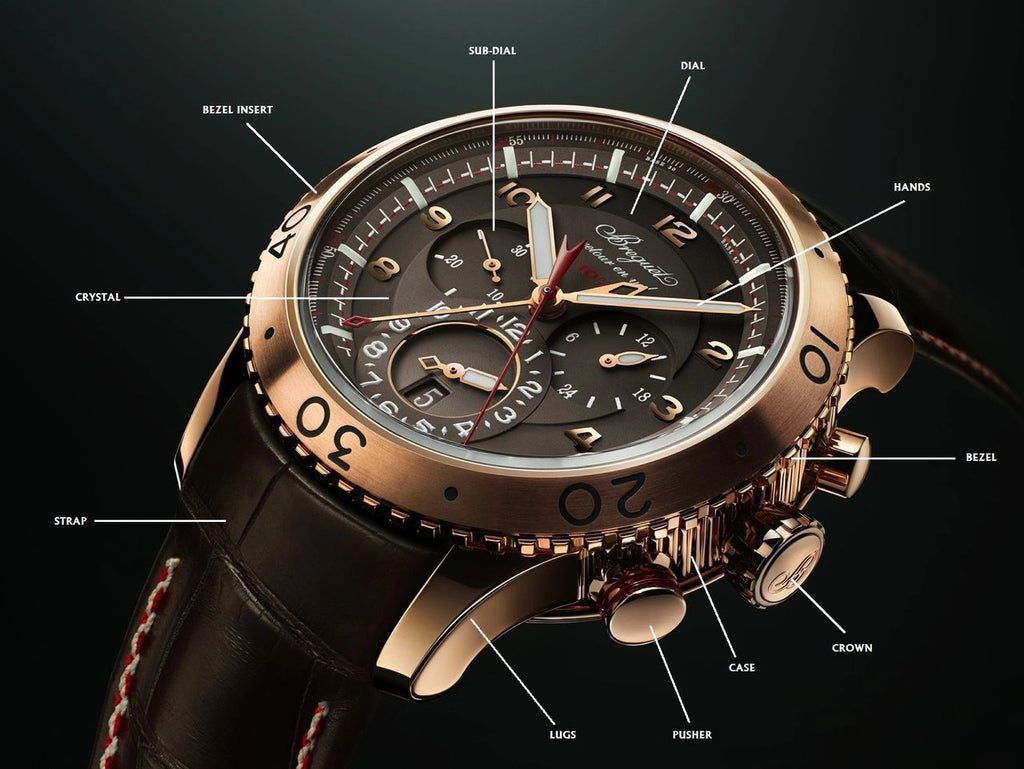The Anatomy of a Watch - A basic guide to watch parts
Posted by VALLAE GOODS on

(Photo courtesy of: https://knoxvillewatchworks.com/blog/f/anatomy-of-a-watch-101-a-beginners-guide-to-watch-terminology)
A traditional swiss made watch can have hundreds of different parts, and it is how they are all put together that gives the watch its value through the ability to give you an accurate time. Here is a simple guide to help you understand the most essential parts of a watch.
Bezel
The bezel can be made of a precious metal, stainless steel, or ceramic, and is the part that goes around the crystal. On some watches, the bezel can rotate in place to provide different functions.
Bracelet or Strap
This is the part of the watch that securely wraps around your wrist to keep the watch in place. Straps can be made of various materials including leathers, cotton, nylon, rubber, etc. and those made of metal are considered bracelets.
Case
The case contains the guts of the watch, including the movement and the dial. The purpose of the case is to protect the watch from external forces and general wear and tear. The shape and material used is a big part of giving the watch its identity from the outside.
Crown
On the side of the case, you will often find a small knob, this is known as the crown. They are used to set the time, and the month/day/year depending on the complication. In many pieces, the crown can also be wound to give power to the watch.
Crystal
The crystal refers to the glass-like that sits over top of the dial, surrounded by the bezel. It is there to keep dirt, dust, and water from ruining the dial, and often have an anti glare coating that helps with the watches readability in different lighting conditions. The crystal can be made of different types of materials, but high end luxury swiss watches often use sapphire crystal due to its strength, anti-scratch properties, as well as being extremely clear to great visibility.
Dial
Often also called the face, the dial is the part of the watch that displays the time and any other information that the watch was designed to provide to the wearer. The dial can display watch complications such as the date, month, year, moon phase, and power reserve, as well as many others. The design of the dial is integral to giving the wearer the ability to easily tell time and take in the information provided easily and quickly.
Hand
The hands of a watch are the markers on the dial that allow you to interpret the time. Majority of watches will have 3 hands that indicate the seconds, minutes and hours.
Hour Marker
Commonly referred to “markers” as well, these are typically on the extremity of the dial, indicating the hours/minutes which are used to tell time.
Lug
The lugs protrude from fours points on the watch case. They are there to accept and secure the bracelet or strap to the case.
Signature
The signature simply refers to the manufacturer's information on the dial of the watch. This could be the logo, model name, or the water resistance.
